Speaking a couple of hours after U.S. President Donald Trump at the 73rd General Assembly of the United Nations on September 25, French President Emmanuel Macron took to the stage with a high ambition: to fire up the world’s faith in multilateralism as a rampart against growing nationalism and protectionism.
Apples and oranges
The speeches by the two presidents could not have been more different. Trump delivered an ode to sovereignty (“that is why America will always choose independence and cooperation over global governance, control, and domination”). He used a whole arsenal of sensationalist vocabulary when invoking Iran (death, chaos, slaughter, mayhem), while mincing words for former “Rocket Man” Kim Jong-un. He launched legalistic attacks, with a Boltonian accent, on multilateral institutions such as the U.N. Human Rights Council and the International Criminal Court (ICC). And he topped his speech by praising what he appeared to view as the “right” kind of countries, such as Saudi Arabia, Israel, and Poland.
On the contrary, far from the particularism of his American counterpart, the French president defended the universality of human rights and made an impassioned call for a renewed multilateralism. Global challenges occupied his speech front and center: education, gender equality, development. The Frenchman called for reforming institutions—which he plans to start with next year’s G-7—as an answer to the crisis of legitimacy of multilateral institutions, which have not delivered to the people but have let exponentially growing inequalities develop.
In appearance, things have not changed much since a year ago: At the 2017 U.N. General Assembly, Trump theorized his “America First” doctrine and barked aggressively at North Korea, while Macron offered a call for a strong multilateralism with some Obama-like lyrical tones. By the way, their sharply contrasting speeches did not condemn the two men to opposition: France and the United States enjoyed a good relationship over the first year of Macron’s presidency, over shared security interests and personal closeness.
And, yet, there is a clear change of tone this year. Macron’s speech was not only a denunciation of everything the American president stands for, down to his methods, it was also a call to arms to defend multilateralism against the attacks of the Trump administration. Macron denounced those who believe in the survival of the fittest, and who will impose their will on everyone else. In a clear rebuke of American perspectives, he defended the benefits of the Iran nuclear deal, but also praised UNESCO, the Human Rights Council, the ICC, and the United Nations Relief and Works Agency for Palestine Refugees in the Near East (UNRWA). And he went as far as recommending that countries “do not sign trade agreements with countries that do not respect the Paris agreement [on climate change].”
Macron’s blame for multilateralism’s failures does not fall fully on Trump’s shoulders: He also scolded “the leaders in the room” for their passivity, their refusal to innovate, their indulgence. But the subtext of his speech, which ended in a righteous rage against unilateralism, was all anti-Trump.
The subtext of his speech, which ended in a righteous rage against unilateralism, was all anti-Trump.
Adjusting to the new normal
Why is President Macron stepping up his rhetoric? For one, because bilateral proximity has not reaped much benefit. However close, Macron was unable to convince his American counterpart not to leave the multilateral agreements on climate or on Iran, and the Trump administration launched an all-out pressure campaign against Europeans on trade, foreign policy, and energy, which culminated in disrupted and unsettling G-7 and NATO meetings.
Second, Europeans and other U.S. allies have started to truly understand the historical meaning of the Trump presidency. It took Europeans almost a year to accept that Trump was the new normal, and it took them a few more months to understand that allies’ interests were not going to be taken into account, and that multilateral institutions were going to be systematically disregarded. Only recently have Europeans fully come to the realization that the divide between the United States and its longtime allies was not one that could be bridged by agreeing to disagree. It is not only that the United States is retreating into isolation, or that it is refusing “to tend to the garden of the liberal world order,” as Robert Kagan writes, letting “the jungle grow back.”
No, Europeans have come to understand by now that the United States is actually becoming one of the predators hiding in the bushes of the growing jungle. Under the leadership of President Trump, the United States is becoming an active opponent of its own allies, using economic interdependence as a weapon for domination and control.
Threatened by this newly aggressive American foreign policy, Europeans are now looking for ways to reconquer their disappearing sovereignty. This week, the EU High Representative for Foreign Affairs and Security Policy Federica Mogherini announced the creation of a Special Purpose Vehicle to trade with Iran. But protecting Europe’s sovereignty is not enough when the foundations of the multilateral system are under threat. President Macron is now calling out to the rest of the planet to unite.
Who could help in holding down the fort of multilateralism? Certainly not Russia and China, whose presidents snubbed the U.N. General Assembly and are making a play at a jungle fight. But, as Jean-Yves Le Drian, French minister of Europe and foreign affairs put it recently, France counts on a coalition of “willing powers” to fight against the “actors of the deconstruction of multilateralism” and restore an “efficient multilateralism,” naming Europe of course, but also India, Canada, Australia, Mexico, Japan, and Korea.
The irony is that America has long been the common denominator in unifying allies of the Pacific and the Atlantic. The question remains whether a disparate group of middle powers—with only one (two, at best) of them being permanent members of the U.N. Security Council—can unite and structure a forceful response to Trumpism, to try and salvage cooperation at the global level.
What will Macron do, beyond speeches, to answer his own call to action? The French might try to formalize his “coalition of the willing” along with Germany, whose minister of foreign affairs called this summer for an “alliance of multilateralists.” Canada has already endorsed the “strong multilateralism” rhetoric, but Asian allies might be more reluctant to join a show of force from the rest of the West against the United States. President Macron will also use the centenary of the 1918 armistice as well as the Paris Peace Forum to trumpet concrete global governance solutions as remedies for world peace. France will continue to push for collective action on education (Global Partnership for Education), migration (Global Compact for Migration), climate (Global Pact for the Environment), including at this year’s G-20 in Argentina and at next year’s G-7 in Biarritz. At the U.N., France will make a new push for a more inclusive Security Council—aided by Germany, which will join on a non-permanent seat—and for a suspension of veto powers in cases of mass atrocity.
The Frenchman in New York walks a fine line. That line will get steeper and narrower, as nationalism is advancing in Europe and unilateralism is gaining ground globally. The enormous challenge for the intrepid French president is that he is carrying far too heavy a weight, nearly alone. With the multilateral system suffering from a deep vacuum of leadership, President Macron has taken it upon himself to breathe new life into moribund institutions, to serve as the poster child for vast topics such as climate and education, to host a conference for global governance and peace in Paris, to win a fight in Europe against the forces of nationalism. A coalition of willing and faithful partners could come in handy.
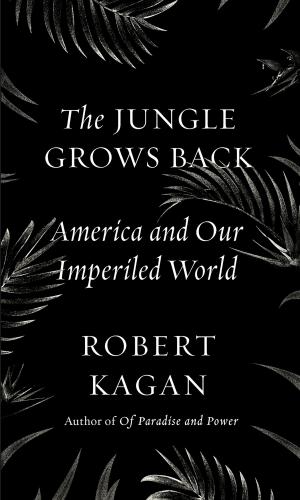

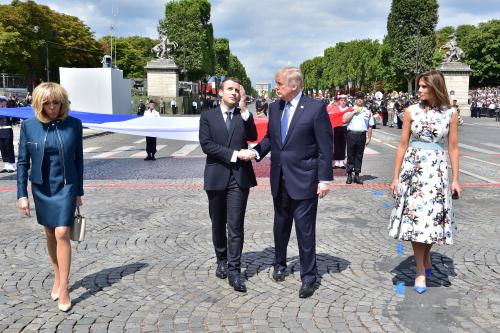
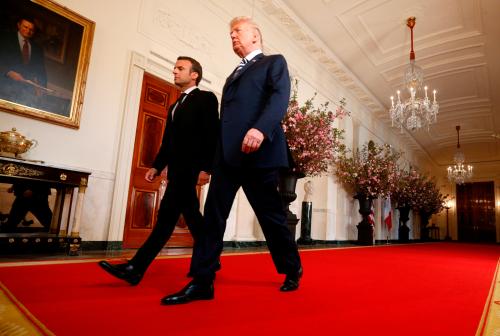
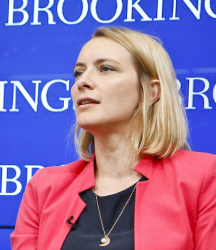
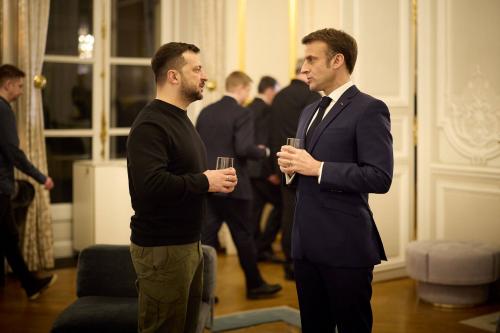

Commentary
Man on wire: An acrobatic act of faith by a Frenchman in New York
September 26, 2018